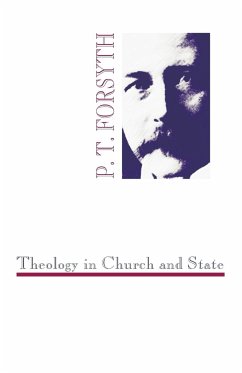The conviction of this book is twofold. First that the idea of the Church and its supernatural life by a new creation is decaying in several of the Churches that have been most critical about its relation to the State; whereas it is only a high and distinctive idea of the Church that gives us any right or principle regarding that relation. And, second, that a true Church is inseparable from a belief in certain doctrines for which men are ready to die--is, indeed, impossible without such belief; and the decay in the Church idea (as distinct from that of a mere association, sympathetic or religious), is due chiefly to the decay of doctrinal interest and conviction. No theology, no Church. --from the Preface

